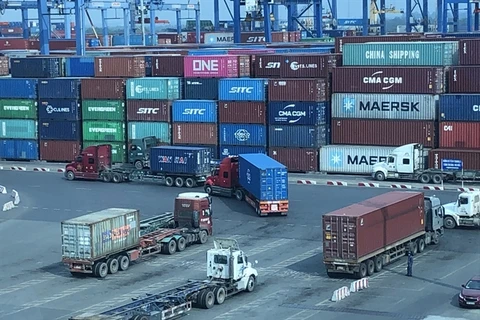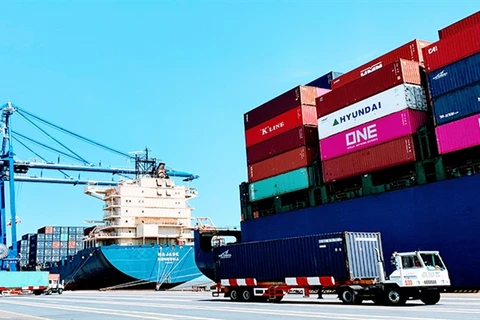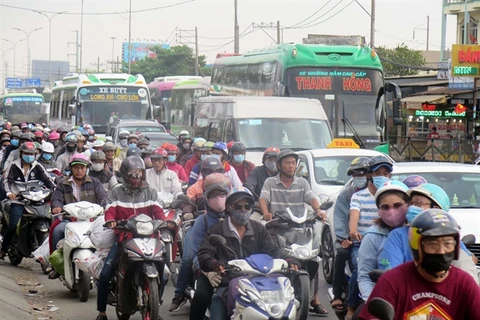 Passengers at Nuoc Ngam bus station in Hanoi. Most fixed-route transport firms have charged their passengers more to offset higher fuel costs. (Photo: VNA)
Passengers at Nuoc Ngam bus station in Hanoi. Most fixed-route transport firms have charged their passengers more to offset higher fuel costs. (Photo: VNA) According to the ministry, fuel prices have increased by 4,625-7,030 VND per litre (0.2-0.3 USD), or 24.91-39.56 percent, after six price adjustment periods since early 2022.
Due to the price hikes, fuel costs have grown to an enormous proportion of the total costs of roadway transport firms, accounting for 40-45 percent of their bills. The firms had no choice but to seek fare rises.
The situation is not better for airlines, whose fuel costs account for 39.5 percent of their total costs. The MoT estimated that airline fuel costs in April climbed by 84 percent compared to September 2015, effectively eroding their profitability.
The Civil Aviation Authority of Vietnam has sent an appeal to the MoT, requesting adjustments upward on ceiling airfares to help airlines to recover.
Meanwhile, railway firms have decided to keep their fares unchanged to attract more passengers and stick to socio-economic targets set by railway authorities. Rail freight rates rose slightly by 3-5 percent.
A few shipping lines have begun to collect fuel surcharges since March to cover higher costs, whereas others have not hiked their fares.
“Mounting fuel prices have not passed on to waterway fares so far. However, the situation may change in the future as fuel prices continue to rise,” the report said.
The MoT has urged agencies and authorities to strictly comply with the instructions of Deputy Prime Minister Le Minh Khai, head of the Steering Committee on Price Management, to keep inflation in check.
Notably, agencies and authorities must not adjust the prices of State-managed goods and services, to ease the cost burden on individuals and firms.
They are also required to keep a close watch on transport firms to ensure that they raise fares reasonably, with any price gouging facing a severe penalty.
The ministry advised the Prime Minister to consider removing or reducing infrastructure fees related to rail, roads and ports, value-added tax on transport services and corporate income tax to mitigate the woes of transport firms.
Regarding struggling airlines, the MoT urged agencies and authorities to implement favourable price policies to help airlines cover higher costs.
The ministry recommends that transport firms be put high on the list of beneficiaries of the economic recovery packages under Resolution 11./.
VNA






















